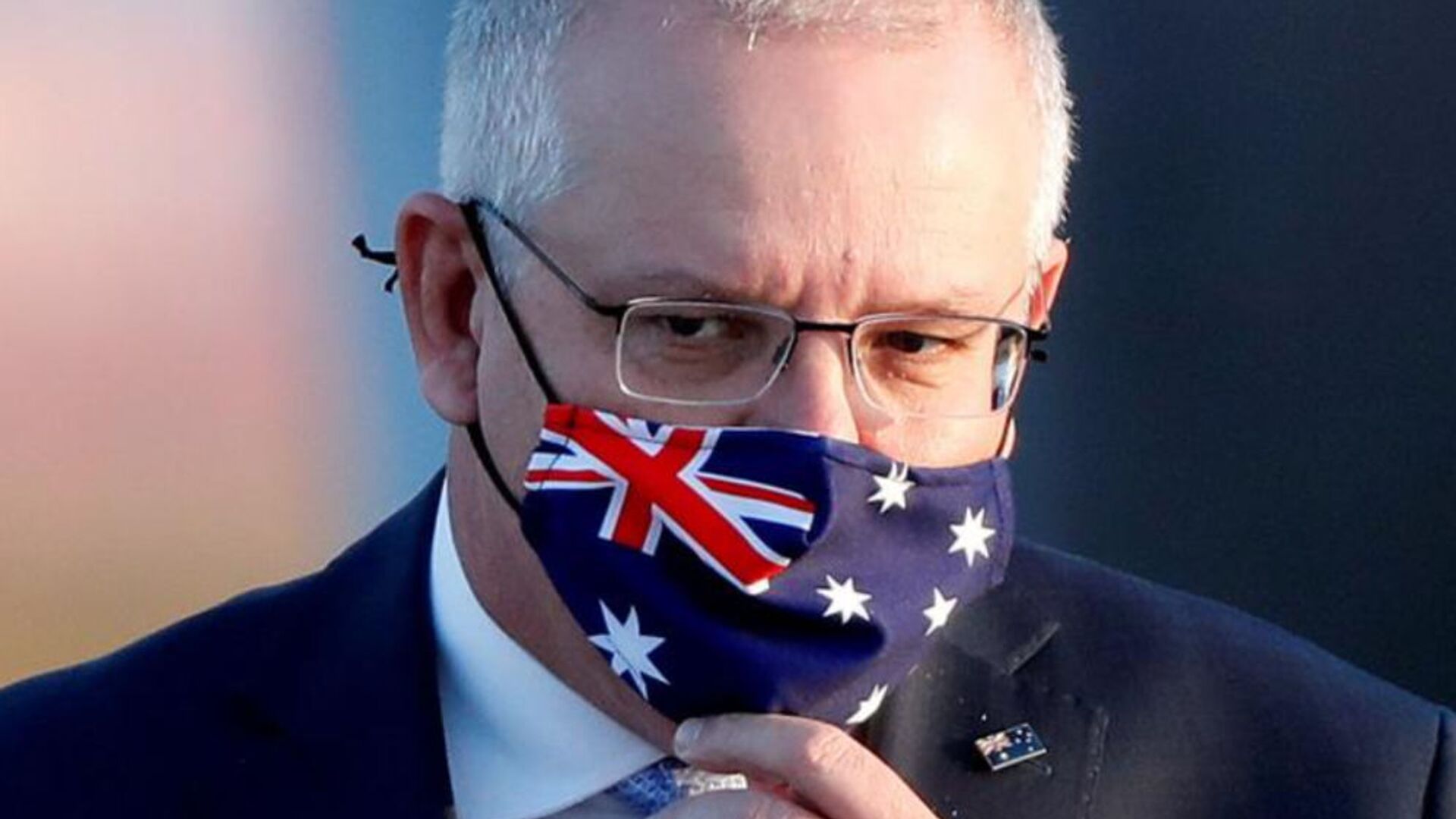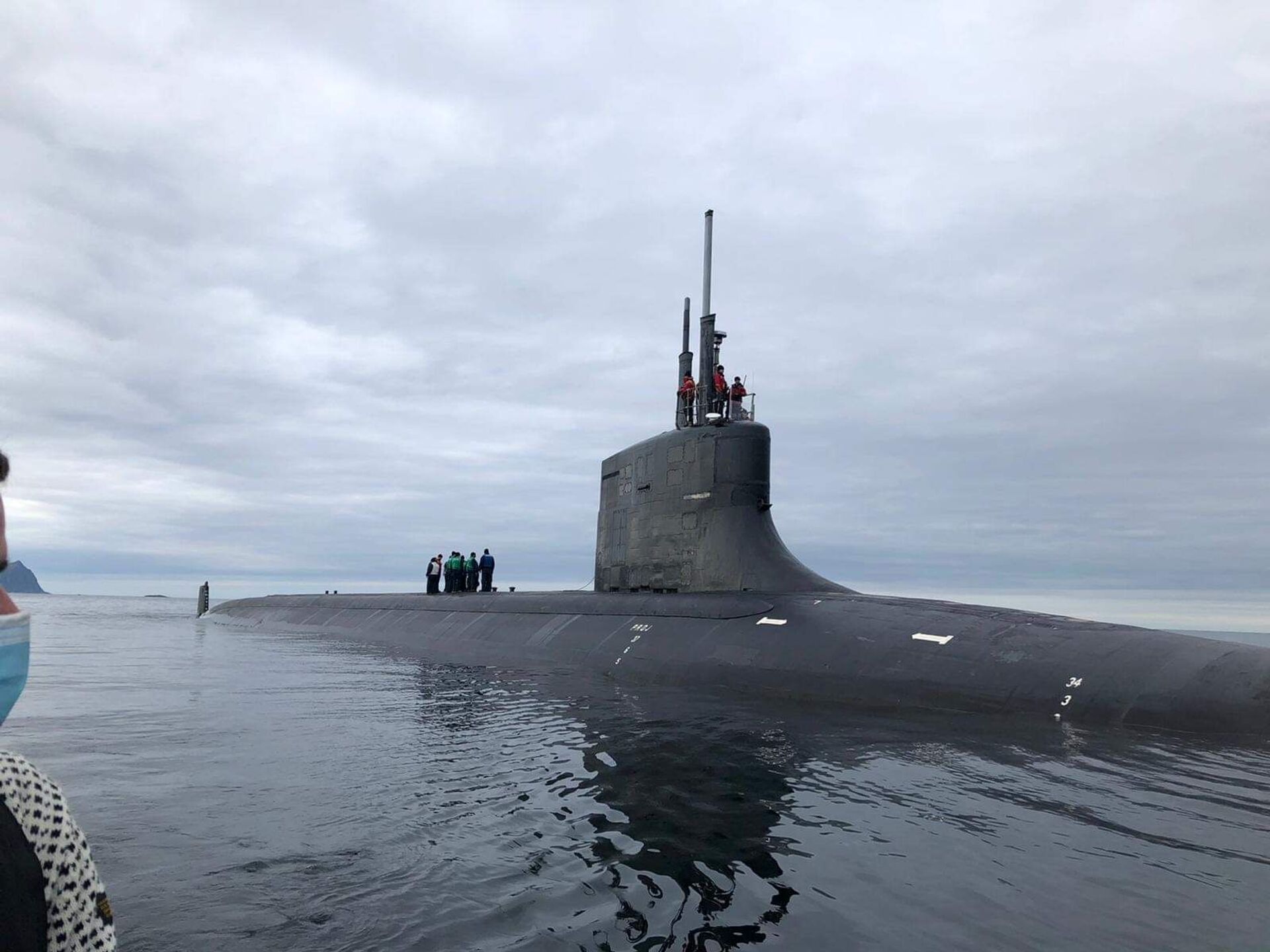Australia’s PM Admits He Knew Ditching French Sub Deal Under AUKUS Would 'Cause Disappointment’
09:00 GMT 21.09.2021 (Updated: 11:11 GMT 21.09.2021)

© REUTERS/Issei Kato
Subscribe
The new security alliance of Australia, the UK and the US, dubbed AUKUS, triggered a diplomatic row with France, as the other two parties to the pact would help Canberra build atomic-powered submarines. Australia, accordingly, tore up its multi-billion dollar conventional submarine deal with France, with "blindsided" Paris decrying the betrayal.
Prime Minister Scott Morrison has admitted he anticipated France’s furious reaction after Canberra scuttled its earlier diesel-electric submarine deal, worth tens of billions of dollars, in favour of a plan to build nuclear-powered subs relying on American and British technology.
“It would be naive to think a decision of this nature was not going to cause disappointment, obviously, to the French… We understand that. We totally acknowledge that. And we knew that would be the case,” said Morrison as he arrived in New York.
The Australian PM’s agenda for his visit includes a meeting with US President Joe Biden and with leaders of the Quadrilateral Security Dialogue, also known as the Quad group. Morrison responded to French indignation at having been informed of the new trilateral security alliance between Australia, the US, and UK, known as ‘AUKUS’ only the night before the official announcement.
The PM emphasized he had been motivated by concerns that the highly secure information could be leaked to the media or other nations. Furthermore, the French side, according to Morrison, had been informed many months ago that conventional submarines no longer met Australia's demands.
“And at the end of the day, you have to do things that are in Australia's national interest, and our security interests. And that had to be paramount,” he said.
The first initiative under #AUKUS is the delivery of nuclear-powered submarines for the @Australian_Navy. This will allow @DeptDefence to meet its mission to protect Australia and its national interests, and that of our regional friends, into the future. #AUKUS pic.twitter.com/CYF05qJqPZ
— Scott Morrison (@ScottMorrisonMP) September 15, 2021
In a historically unprecedented step, France withdrew its ambassadors from Australia and the United States in response to what it branded a “stab in the back”. The Australian Prime Minister also revealed that he was yet to speak with President Emmanuel Macron since the diplomatic row, saying:
“No, there's not an opportunity for that at this time. I'm sure that opportunity will come in time. Right now I understand the disappointment and they're working through the consultations with their ambassador's return to Paris and we'll be patient with that.”
Earlier, Australian Defence Minister Peter Dutton said Canberra had been "upfront, open and honest" with France about its concerns regarding the submarine deal. However, he declined to reveal costs of the new pact, conceding that "it's not going to be a cheap project".
‘Unacceptable Behavior’
Paris had responded to the decision by Australia to abandon the multi-billion dollar 2016 deal struck with France's Naval Group to build 12 conventional submarines as "unacceptable behaviour between allies and partners".
French foreign minister Jean-Yves Le Drian described it as a "stab in the back" and French President Emmanuel Macron historically ordered the recall of the French ambassadors to Washington and Canberra.

The Seawolf-class fast attack submarine USS Seawolf (SSN 21) conducts a brief stop for personnel in the Norwegian Sea off the coast of Tromso, Norway, Aug. 21, 2020.
© US Navy
Jean-Yves Le Drian and Armed Forces Minister Florence Parly deplored “an absence of coherence that France can only observe and regret.”
The world is a jungle. France has just been reminded this bitter truth by the way the US and the UK have stabbed her in the back in Australia. C’est la vie.
— Gérard Araud (@GerardAraud) September 15, 2021
Ex-ambassador to the US Gerard Araud tweeted on Thursday to say that France was reminded that “The world is a jungle.”
‘Regional Security Concerns’
When the AUKUS announcement was made by US President Joe Biden, UK Prime Minister Boris Johnson and Australia’s Prime Minister Scott Morrison in a joint video-link press conference on 15 September, reference was repeatedly made to regional security concerns which they said had "grown significantly".
"This is an historic opportunity for the three nations, with like-minded allies and partners, to protect shared values and promote security and prosperity in the Indo-Pacific region," said the joint statement, which did not mention China by name.
However, Beijing slammed the three-way security pact, widely viewed as an effort to counter China's assertiveness in the contested South China Sea as "extremely irresponsible" and "narrow-minded”.
The #US and #Australia gang up to smear #China, interfere in China's internal affairs out of geopolitical interests and drive wedge between regional countries. China deplores and firmly opposes this. pic.twitter.com/HP9gJ1K43b
— Lijian Zhao 赵立坚 (@zlj517) September 17, 2021
Chinese foreign ministry spokesman Zhao Lijian said the alliance risked "severely damaging regional peace... and intensifying the arms race". The pact was branded a manifestation of "the obsolete Cold War... mentality" by China, as it warned the three countries were "hurting their own interests".



